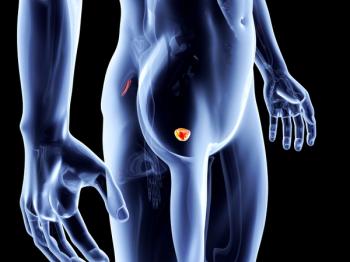
Spreading Greater CAR T-Cell Therapy Education in the Community Setting

Greater direct access to academic oncologists may help address challenges associated with a lack of CAR T education in the community setting.
There is a need to educate those in community practices about CAR T-cell therapy and create a more seamless referral process to more efficiently treat patients undergoing this process, according to Ogechukwu Egini, MD, MS.
CancerNetwork® spoke with Egini, hematologist and oncologist and assistant professor of medicine at the Rutgers Robert Wood Johnson Medical School, about challenges associated with CAR T-cell therapy in community settings and how they may be addressed to improve patient care at the 2024 Annual Oncology Clinical Practice and Research Summit.
Egini highlighted a challenge in treating patients with CAR T-cell therapy that arises from a lack of patient awareness of what the treatment entails prior to referral to an academic practice. Egini expressed that much of his time with patients involve educating them about CAR T-cell therapy as well as combating misperceptions of what CAR T entails. He further explained that a lot of work is necessary for academic oncologists to educate both community oncologists and patients about CAR T.
Egini then suggested that academic oncologists could provide phone numbers to community practices to better expedite communication processes, thereby addressing accessibility issues. He contrasted that with previous experiences where orders were sent through different contacts before eventually reaching an academic oncologist.
Transcript:
All of this is directed at the patient, and patient awareness is important. Again, not to the fault of any patient, but I sometimes find that we need to do a lot of educating. When patients come to me, I spend [a lot of time] with them educating them about what this process is, telling them what CAR T is and what CAR T is not. There is a lot of––not the fault of anyone––assumptions about what CAR T is in the community. It is a lot of work on our own path to educate our patients and the community about CAR T and continue the education of the community doctors about CAR T and when to refer patients.
More importantly, we need to do a better job of making ourselves available, whether it is by providing our phone numbers to referring doctors so that the referral process is more seamless. Sometimes, when people have to put in orders, it gets routed through different mechanisms before it eventually comes through.
Reference
Matasar M, Dillard S, Egini O, McEntee N, Phillips A. CAR T-cell therapy via a community lens. Presented at the 2024 Annual Oncology Clinical Practice and Research Summit; November 15-16, 2024; New Brunswick, NJ.
Newsletter
Stay up to date on recent advances in the multidisciplinary approach to cancer.














































